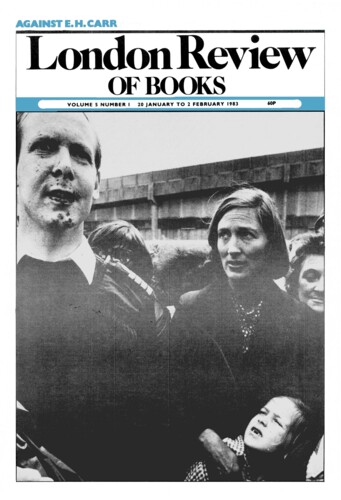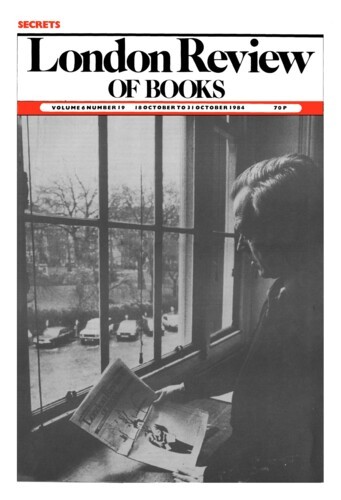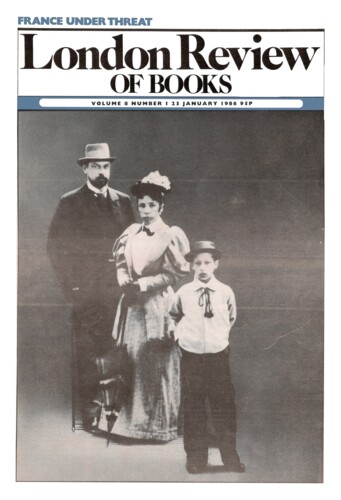Prime Ministers’ Pets
Robert Blake, 10 January 1983
In reviewing the Gladstone Diaries and the Disraeli Letters I must declare an interest. I am chairman of the committee which superintends the publication of the former and one of the research consultants involved in the latter. But the quality and scholarship of the editors of all these volumes has been so widely acclaimed by others that there is no danger of appearing to give an unwarranted puff to works with which I am connected. Both sets of volumes are admirably edited and if the task is worth doing at all one can safely say that it could hardly have been done better. I have only one criticism of the Disraeli letters. The editors have rightly printed Disraeli’s so-called ‘Mutilated Diary’ in appendices in each volume covering the appropriate years, but whereas his correspondence is very fully annotated, no attempt at all has been made to explain the references in the diary. Yet there is just as much need for explanation here as elsewhere – in fact more, for the diary is particularly allusive and obscure.



